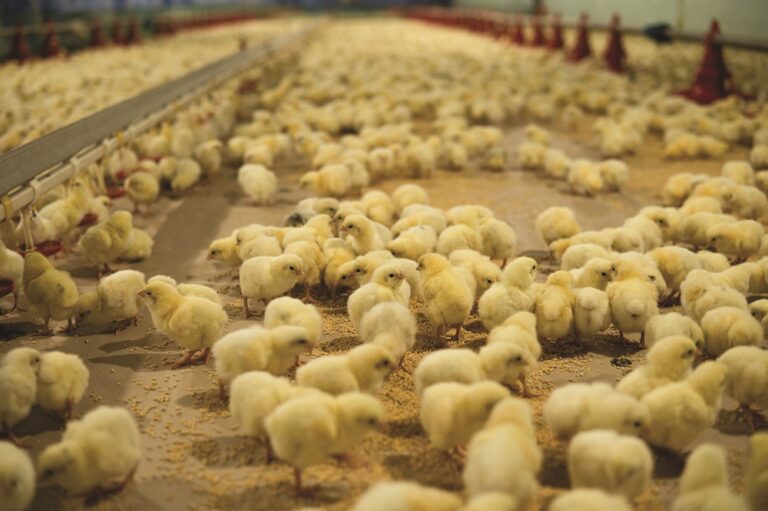Jennifer Lock, avian specialist representative and Dr Alex McDaniel, avian veterinary advisor, both of Boehringer Ingelheim Animal Health UK, discuss the innovations in bird health on farms.
The importance of the role of vaccination in the prevention and control of disease in the poultry industry has long been established worldwide.
However, it is also acknowledged that administering a vaccine to guard against a specific pathogen does not guarantee complete protection from the disease if other factors such as an overwhelming pathogen load in the environment or underlying stress factors within the bird population are not addressed. When it comes to preventing a disease challenge on farm, an integrated approach should be used to include:
Vaccination
Hygiene – during the crop and at turn around
Biosecurity
Appropriate bird husbandry, management and nutrition
After many years of providing vaccine administration training and auditing to ensure successful vaccination, the field services team at Boehringer Ingelheim Animal Health UK has added farm hygiene audits to their field service portfolio. Drawing from a wealth of farm management and auditing experience within the Boehringer Ingelheim team, the hygiene audits are designed to audit and assess the cleaning and disinfection process at turnaround and, therefore, offer insights into how the process can be improved and enhanced.
The table below provides a brief overview of the different steps undertaken in the audit and the resulting outcomes from each step. The audit can often involve a number of visits over different days to ensure that the entire hygiene process is monitored objectively without assumptions.
| Audit Steps | ||
| Key Area | Measure | Outcome |
| Chemical Usage | Review of chemical dilution rates
Review of water usage Check Defra approval rates Check chemical actives match farm requirements |
Written recommendations for water and chemical quantity usage
Description of different chemical actives |
| Process Audit | Visual inspection of litter removal
Visual inspection of detergent application Visual inspection of rinse method Visual inspection of disinfectant application |
Discuss with hygiene teams during audit any possible process improvements
Written report on all improvement areas highlighted Written report on all areas of good practice |
| Visual Clean Audit | Visual inspection of a completed washed shed | Scored areas of each poultry house with evidence of findings
Summary of top recommendations |
The hygiene audit process has been designed to work collaboratively with the farm, poultry veterinarian and the hygiene teams to ensure all parties are consulted and involved in the audit findings and recommendations.
This integrated approach is essential to ensure that the entire hygiene operation and correct use of detergents and disinfectants is targeted appropriately to address any possible field strain challenges on site. For example, the identification of a field strain of Gumboro Disease Virus on farm would mean that, along with other control measures such as appropriate vaccination, a tailored viricidal clean and disinfection program would need to be implemented to minimise the risk of the recurrence of disease in the next crop.
Technical knowledge of the structure of the virus and its tendency to persist in the environment along with an in-depth understanding of the optimal hygiene methodology and chemical usage to target the Gumboro Disease Virus is vital to achieve successful reduction.
BIAH’s hygiene audit complements the existing work undertaken on farm by the farm management team and chemical suppliers and it will be essential for a farm to continue all other routine hygiene monitoring, particularly the surface and water coliform and TVC (total viable count) testing for assurance standard compliance.
For hygiene swabs to be used as an effective management tool then they ideally need to be taken in the same area each crop but also with the same type of swab (cotton swab or dipslide) and same laboratory as changing between different methods can produce variable results that reduce the effectiveness of routine monitoring.
In summary, this innovative approach of providing holistic pathogen control on farm in the form of hygiene audits in addition to the well-established vaccination audits and training offers the opportunity to further improve the overall health status of the farms.
If you feel a hygiene audit on your farm would be beneficial then please contact your veterinary practice in the first instance to make arrangements.


